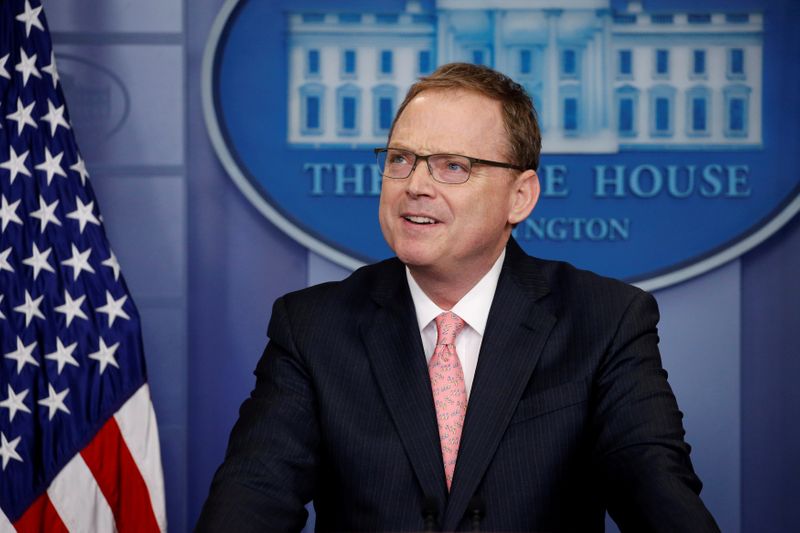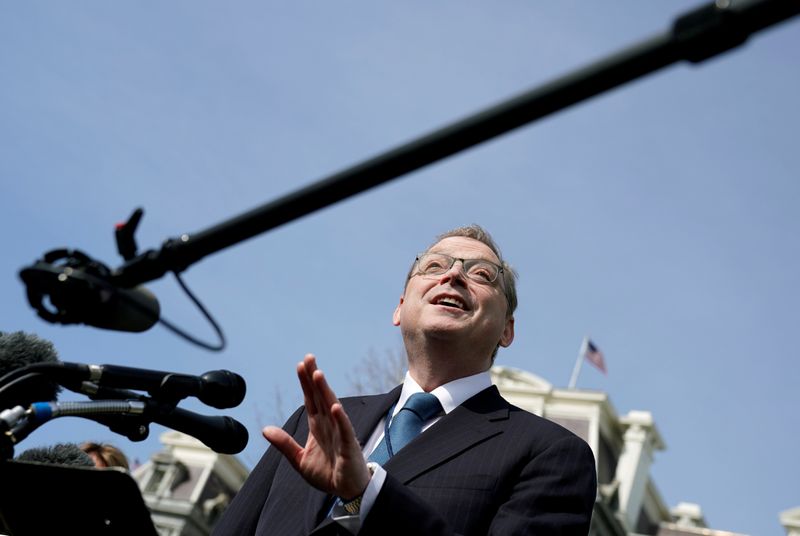By Jeff Mason and David Lawder
WASHINGTON (Reuters) - White House economic adviser Kevin Hassett said on Monday he will be leaving U.S. President Donald Trump's administration soon, ending a brief return to government to help respond to the coronavirus pandemic.
Hassett, who served as chairman of the White House Council of Economic Advisers for about two years before stepping down in the middle of 2019, returned to the administration for a temporary stint earlier this year.
"I came in unpaid for 90 days. Time is about up," Hassett told Reuters in an email. He said Monday may be his final day.
Hassett had come for a "temporary gig as a special government employee. No other reason for departure," another White House official said.
In the early days of the outbreak, Hassett brought attention to the massive economic fallout expected from the coronavirus, painting a more dire picture of the likely repercussions than other White House aides were doing at the time.
Hassett’s leaving, which comes after the recent departure of Andrew Olmem, deputy director of the National Economic Council, could curb the influence of economic adviser Larry Kudlow, one analyst said.
“Kudlow is now very much understaffed. His role in policy-making is unavoidably going to decline further,” said Derek Scissors, a resident scholar at the American Enterprise Institute who focuses largely on U.S.-China policy.
This could influence whether Trump decides to stick with his Phase 1 China trade deal or embark on a policy of further decoupling the U.S. and Chinese economies, Scissors said.
Kudlow has been a strong advocate for the Phase 1 deal, which calls for major increases of Chinese purchases of U.S. farm and manufactured goods, energy and services.

William Reinsch, a senior adviser at the Center for Strategic and International Studies, said that Hassett had advocated for additional stimulus to dig the economy out of a deep recession, but his departure could give fiscal hawks the upper hand in shaping any future coronavirus aid bills.
